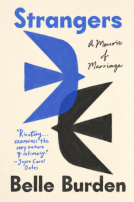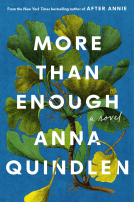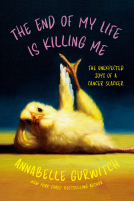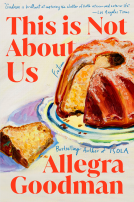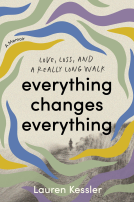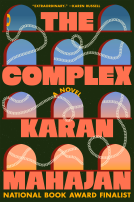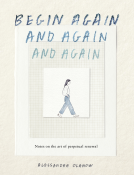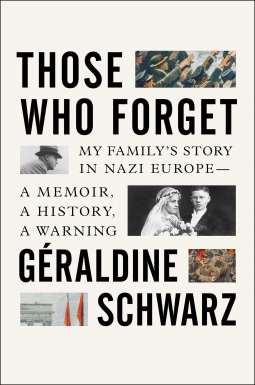
Those Who Forget
My Family's Story in Nazi Europe – A Memoir, A History, A Warning
by Geraldine Schwarz
This title was previously available on NetGalley and is now archived.
Send NetGalley books directly to your Kindle or Kindle app
1
To read on a Kindle or Kindle app, please add kindle@netgalley.com as an approved email address to receive files in your Amazon account. Click here for step-by-step instructions.
2
Also find your Kindle email address within your Amazon account, and enter it here.
Pub Date Sep 22 2020 | Archive Date Oct 12 2021
Description
“Riveting…we can never be reminded too often to never forget.” —The Wall Street Journal
Journalist Géraldine Schwarz’s astonishing memoir of her German and French grandparents’ lives during World War II “also serves as a perceptive look at the current rise of far-right nationalism throughout Europe and the US” (Publishers Weekly).
During World War II, Géraldine Schwarz’s German grandparents were neither heroes nor villains; they were merely Mitlaüfer—those who followed the current. Once the war ended, they wanted to bury the past under the wreckage of the Third Reich.
Decades later, while delving through filing cabinets in the basement of their apartment building in Mannheim, Schwarz discovers that in 1938, her paternal grandfather Karl took advantage of Nazi policies to buy a business from a Jewish family for a low price. She finds letters from the only survivor of this family (all the others perished in Auschwitz), demanding reparations. But Karl Schwarz refused to acknowledge his responsibility. Géraldine starts to question the past: How guilty were her grandparents? What makes us complicit? On her mother’s side, she investigates the role of her French grandfather, a policeman in Vichy.
Weaving together the threads of three generations of her family story with Europe’s process of post-war reckoning, Schwarz explores how millions were seduced by ideology, overcome by a fog of denial after the war, and, in Germany at least, eventually managed to transform collective guilt into democratic responsibility. She asks: How can nations learn from history? And she observes that countries that avoid confronting the past are especially vulnerable to extremism. Searing and unforgettable, Those Who Forget “deserves to be read and discussed widely...this is Schwarz’s invaluable warning” (The Washington Post Book Review).
Available Editions
| EDITION | Other Format |
| ISBN | 9781501199080 |
| PRICE | $28.00 (USD) |
| PAGES | 320 |
Average rating from 16 members
Featured Reviews
 Jade H, Reviewer
Jade H, Reviewer
In French there is a word for people who lose their memory, or forget things: “les amnésiques”. The word comes from the Latin word “amnesia”, also used in English, which means a complete or partial loss of memory due to trauma, injury etc. Géraldine Schwarz uses this term as the original title of her book (translated to Those Who Forget in English), and I think it accurately sums up the main theme that prevails through-out the book: that awful tendency that we humans have to erase and forget certain parts of our history in order to live guilt-free. That whole “I didn’t participate in XYZ, so I was not part of it” attitude that is still a core part of our make-up today. The ability that we have to not hold ourselves accountable for acts committed by those around us, telling ourselves that because we did not actually physically commit those acts, we were not part of it. Well, silence is complicit, and silence allows violence to become genocide, and hatred to become state-sanctioned mass murder.
Géraldine Schwarz is a German and French journalist, and Those Who Forget is a deep dive into her family’s past, but also a general overview of Germany before, during, and after the war, and the Germans in general during that time. There is a term for Germans who were not active Nazi followers, those who just followed the current: “Mitlaüfer”. Schwarz grew up thinking that her German grandparents were Mitlaüfer, but when she discovers that her grandfather appears to have taken his own advantage of anti-Semitism in 1938, she starts to wonder how complicit he actually was, and how complicit the entire population was. Schwarz also studies the actions of the French side of her family as her mother’s father was a Vichy policeman during the war. I really love how the author creates a story by weaving through three generations of her family, and each generation's own way of reckoning with what their country and their people did during the war. Within these studies the author takes us on a personal journey of discovery, but also on a more general journey into our collective ability to forget and move on, while burying the past, and what this actually means for our future. If we bury the past how can we move forward without committing the same acts down the road? If we remain silent in the face of wrong, how can we really hope to make a change in the future?
This is such a timely book, as I feel that, once again, we are at a crossroads, and our actions, as individuals and as populations in general, will dictate how the future unrolls. Nazism, Fascism, and Anti-Semitism were never wiped out, but hastily buried in a shallow grave with a breathing tube. I appreciated the parallels that the author draws with other atrocities committed elsewhere (slavery in the US for example), portraying how none of us are safe from being persecuted and/or complicit in persecution of others.
I asked my sister to send me a copy of this book in the original language as I want to be able to read it again in French. Part memoir, part history, part warning, this is a must read in my opinion, and also a call to action: do we really want to continue to watch the same atrocities be committed over and over again, standing by and pretending that we are not guilty by association? Or do we want to stand up and actually say NO MORE and mean it? I know what side of history I want to be standing on.
Thanks to Netgalley and to the publisher for the advance copy in return for an honest review.
 Sarah O, Reviewer
Sarah O, Reviewer
Extraordinary work of journalism. Winner of the European Book Prize and other awards in Germany and the authors native France. Schwarz uses the personal history of her parents and grandparents to expound upon the importance of preserving national memory. She details how Germany was able to come to terms with its nationalist Nazi past to become one of the worlds strongest democracies. She also draws parallels between other countries such as Italy and France who struggle with accepting the blame of their fascist pasts.
Utterly fascinating review of history and also sadly relevant to today's political climate. The importance of memory work among a nation's population is paramount to its success. To paraphrase Schwarz "Without this memory work, individuals and societies will be pushed to make irrational choices by supporting regimes and leaders who are opposed to their interest, by becoming complicit in criminal ideas and actions." Sadly, I feel like this already taking place in the US. There are striking similarities between the alt-right movement in the US and the Nazi party rise in the 1930s. This book serves as a warning. Definitely required reading for any WW2 historian, history lover, or political junkie. Thanks to NetGalley for providing an ARC for review.
 Kim K, Reviewer
Kim K, Reviewer
My Review can be found at Bookbrowse.com (https://www.bookbrowse.com/mag/reviews/index.cfm/ref/pr267136)
Growing up in Germany and France, Géraldine Schwarz became curious about how Hitler rose to power, how people reacted to his ascendance and ultimate defeat, and more specifically what role her grandparents played as German citizens during this time. She discusses her findings and issues a warning about history repeating itself in her debut book, Those Who Forget, translated by Laura Marris.
Schwarz's grandparents were what she refers to as "Mitläufer" – those who "followed the current" – neither ardent supporters of Hitler's policies nor adamantly opposed to them, people who just continued to live their lives as the effects of the policies took shape. Like so many others, they turned a blind eye to the increasingly brutal treatment of their Jewish neighbors while benefiting from the political situation. One of Hitler's earlier moves was to economically incapacitate the Jewish population by forcing them to sell their businesses and property to non-Jews. The author shows how her grandfather took advantage of this by buying out a profitable petroleum business. He later excused his actions by claiming he gave the seller a better price than required under German law and consequently was actually helping him. It's the many "little blindnesses," Schwarz states, that allowed the government persecutions to continue, and "although the impact of each Mitläufer was tiny on an individual level it had a cumulative effect," eventually allowing "conditions for the worst state-orchestrated crimes known to humanity."
According to the author, a "pathological amnesia" developed after World War II. She realized that "in the apocalyptic atmosphere of postwar Germany, the priority was not revisiting the past but pulling together a new life." Her father, born during WWII, told her that the war years were never discussed when he was growing up. His history books ended with the Weimar Republic — the German government put in place following Kaiser Wilhelm II's abdication in 1918 and remaining until Hitler's appointment as Chancellor in 1933. Terms like "Konzentrationslager" (concentration camp) and "SS-Mann" (SS soldier) were removed from dictionaries. When Germans did remember the Hitler era at all, it was often tinged with nostalgia.
Schwarz goes on to discuss how under Helmut Kohl, Chancellor of Germany from 1982–1998, the country began to repair itself. She credits Kohl with forcing the population to remember the past and face their complicity, writing that "memory, when it is deliberately cultivated, can heal many wounds," and accuses other countries of refusing to come to terms with the uglier parts of their histories. Referencing France's cooperation with Germany during WWII and the Allies' deliberate carpet-bombing of civilian targets, among other examples, she extends this line of thinking to hypothesize that societies that do not do what she calls "memory work" are on a dire path: "[I]f history as such does not repeat itself, sociological and psychological mechanisms do, which push individuals and societies to make irrational choices by supporting regimes and leaders who are opposed to their interests, by becoming complicit in criminal ideas and actions." Schwarz urges readers to be aware of and on the lookout for these mechanisms.
I was expecting the author to draw stark parallels between the rise of Nazism and our current partisan climate, but while politically minded readers will certainly see similarities, she isn't explicit. Indeed, I was surprised at how little she emphasizes the worldwide rise of populist leaders and the widespread increase in xenophobia, calling out specific leaders and issues, such as Hungarian Prime Minister Viktor Orbán's anti-immigration policies, only briefly and late in the book. She hardly mentions the American president — just a few sentences — though her critique of him is scathing, stating that although his election was the impetus for writing the book, "Donald Trump is not a fascist - partly because he cannot commit to a cause other than himself. He is an opportunist who uses the same methods of mass manipulation that the fascists used a century ago in Europe."
Although the transition from history to analysis of current events is relatively abrupt, the placement of brief commentary on recent issues later in the book still works well considering that Schwarz's account is primarily chronological. Also, in deferring this commentary, she avoids turning off readers who disagree with her assessment or who pick up the book because of a specific curiosity about the historical rise of Nazism. In any case, the narrative is fascinating from start to finish, combining a top-notch family memoir with history and social criticism.
Like many, I've pondered the Holocaust over the years, wondering how such a thing could happen, how average, well-meaning people could permit a climate in which others are systematically persecuted or killed. Those Who Forget is enlightening in that regard, and provides a lot of food for thought. Schwarz's warning, too, is an important one that should be heeded. Many of the issues present in 1930s Germany have re-emerged in the past decade (in particular with the international rise of white supremacist groups, encouraged by populist leaders), and only through seeing the parallels can we avoid repeating the mistakes of the past. Hopefully, the book will attract a wide audience, even if some disagree with the author's conclusions. It's an absolutely excellent choice for anyone interested in history and current events, and for book groups, too, providing timely and important fodder for deep discussion.
#Those Who Forget, has won international awards and acclaim by author # Geraldine Schwartz. This is a memoir of the past and a warning for today. A account of her family's past with the Nazis during World War Two. A beautiful autobiography.
Thank you,
# Netgalley, # Geraldine Schwartz, and #Scribner for the advanced copy
Readers who liked this book also liked:
Annabelle Gurwitch
Biographies & Memoirs, Health, Mind & Body, Humor & Satire
Benjamin Reynaert
Arts & Photography, Home & Garden, Reference
Alessandra Olanow
Arts & Photography, Religion & Spirituality, Self-Help

